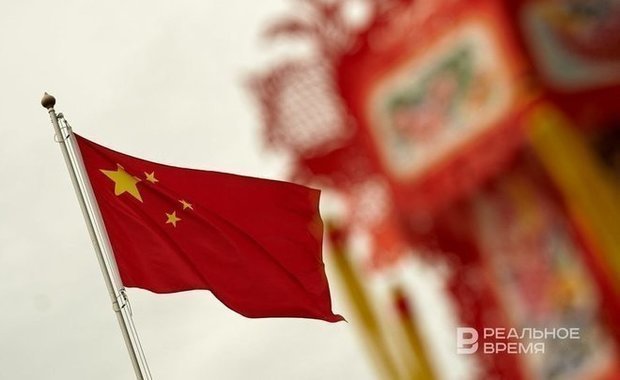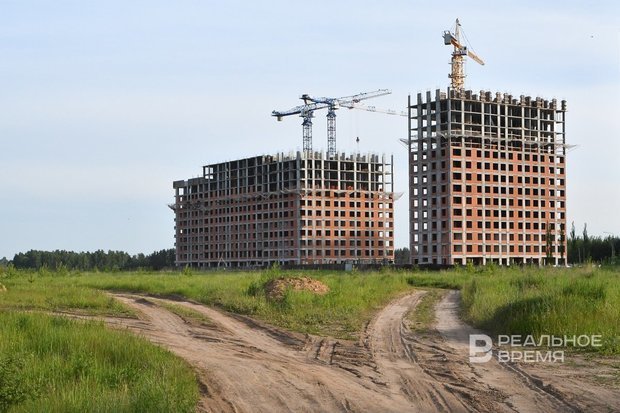Anton Rushev: ‘Construction industry is such that its crisis can bury the entire economy’
What conclusions should be drawn from the experience of other countries to avoid harsh scenarios in Russia

In Russia, the commissioning of housing is proceeding at a record pace, but along with the increase in the area of residential real estate, its cost is also growing. This is influenced by many factors, including land owners, who become “the biggest beneficiaries of the overheating of the real estate market”. Anton Rushev, the head of Kept (formerly part of KPMG international network) in Tatarstan, discusses what experience other countries have accumulated in the construction sector, which plays such a big role in the economy, and what conclusions Russia should draw from it.
“The overall result of the period 2021-2023 — both sales volumes and prices are declining in the market”
The Japanese real estate crisis of the 1990s, the Chinese current crisis — what conclusions should we draw for the national economy and what actions should we take to avoid such harsh scenarios in the next five years? Looking at the statistics of the Russian real estate market, it seems that it has a large margin of safety — a square metre per capita is still significantly lower than the global average. The escrow account mechanism provides incentives for developers to keep the debt burden and the number of parallel projects under control. The Central Bank is making efforts to combat the inflation of the cost of new buildings, which was achieved by putting the effect of an ultra-low mortgage rate into the price of a square metre. But is everything so calm?

What if this segment of demand is exhausted? The construction industry is so important that its crisis can bury the entire economy with it. Let's see what was happening in China.
In August 2023, Chinese Evergrande, which committed a technical default on bonds in 2021 and burdened with $300 billion in total liabilities, finally filed for bankruptcy in a New York court. In one of the attempts to get quick liquidity, Evergrande arranged a sale with 30 percent discounts on its facilities, which ultimately did not help them. Over the past two years, more than ten smaller developers in China have defaulted on payments. After the introduction of the “three red lines” in 2020, imposing restrictive criteria on the financial performance of developers to be able to access public credit resources, the Chinese government managed to turn around. If earlier their policy was aimed at cooling the warmed-up market, then at the end of 2022, the government issued a 16-point plan, which was intended rather to support the market, which was stagnating by that time. This immediately led to an increase in the stock prices of construction companies.
For example, the shares of the largest public developer, Country Garden Holdings, rose in price by 55%. Looking ahead, it didn't help them, and in August 2023, the company with $200 billion in liabilities also made a technical default on bonds.
But in terms of the number of objects under construction (more than 3 thousand), the company is significantly more significant than Evergrande (at the peak of more than 700 objects). The reporting of Country Garden Holdings showed appalling losses and negative flow from operating activities for the six months of 2023. The total result of the 2021-2023 period — both sales volumes and prices are declining in the market.
“The events of 2023 have dealt a new blow to China's real estate market”
It remains to be guessed how things would have developed in China in a calm mode if there had not been a complication in the form of geopolitical strikes by the United States, but the fact remains that the events of 2023 dealt a new blow to the Chinese real estate market. The United States launched a struggle for the separation of China from the supply of high-tech components, the exports and imports decreased by 10% in 2023. This pulled the rest of the sectors along with it. In June-July 2023, real estate sales in China decreased by 33% compared to the same period last year.

Due to the high volatility of the stock market, real estate in China has traditionally been one of the assets in which the population invested more willingly, since prices for it have been steadily rising since the early 2000s. At the same time, the real estate sector still acted not as a driver, but rather as a beneficiary of the growth of other sectors of the export-oriented economy, digesting the inflow of funds from a positive balance of payments. Accordingly, the share of the population who bought apartments not to solve the housing problem, but as a reliable investment, steadily grew.
For the time being, economic indicators did not go in contrast to the real estate market. From 2000 to 2015, the growth of real incomes of the population was consistently higher than the growth of prices for new buildings. However, the situation changed in the 2015-2019 interval.
Counting on a further increase in land prices, construction companies were in a hurry to immediately reinvest a significant part of the funds received from buyers at the early stages of construction of facilities in the acquisition of land plots, which looked quite reasonable in a steadily growing market, as an attempt to fix an important part of the cost of facilities. Thus, as long as sales were going well, real estate was growing, and the cost of credit resources was lower than the growth of real estate indices, it was economically justified to finance the purchase of lands by actually increasing the debt burden.
However, when the volumes of real estate unnecessary to the economy increased significantly, such phenomena as ghost towns appeared in China
And if in the warm climate of China it is possible to safely let unheated and unlit houses stand and wait for their buyers, then our Russian economy in any case bears a much heavier burden of maintaining facilities in working order, and any surplus real estate that is not used for its intended purpose, in fact, divert the energy resources of the economy from their optimal use, make electricity is more expensive, including for industrial consumers. We all pay the distributed cost of heating and maintenance of an empty housing stock from our pocket.
“Owners of land banks sit on unused plots like a dog in the manger”
But this is not the most important thing — the biggest beneficiaries of the overheating of the real estate market are not developers, but land owners. Developers are forced to buy land at higher and higher prices, while land owners do not incur any costs, since all of them had been incurred significantly earlier, perhaps decades ago. At the same time, land owners do not take risks, unlike developers.

Is this situation fair to the owners of a technically complex construction business? No. Is this situation fair in relation to the most needy categories of the population who lose the opportunity to improve their conditions? No.
What is the way out of the situation that would reduce the unstoppable price growth? This is the creation of a state register of unused lands, on which large owners of land banks sit like a dog in the manger, waiting for a profitable sale, combining the register with the master plans of cities, categorising lands by the priority of their involvement in the development of the city. This is just a preliminary analytical work, which should form the information basis for tough, but necessary, in my opinion, steps. Such as the launch of the annual forced sale of Danish auctions for priority land plots.
Reference
The author's opinion may not coincide with the position of the editorial board of Realnoe Vremya.